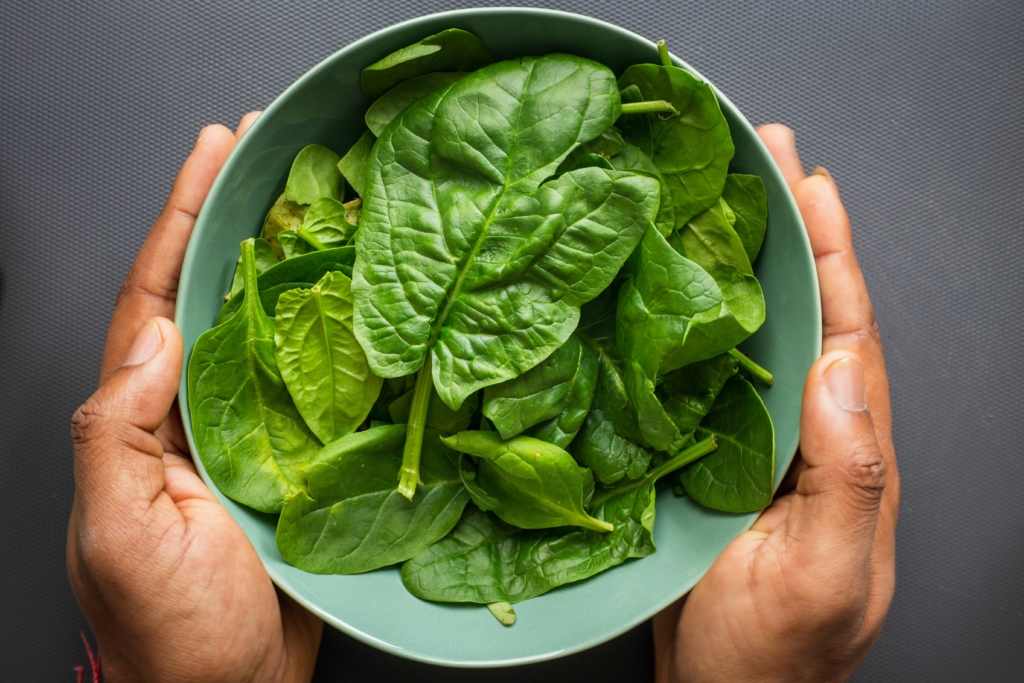In today’s modern society, transporting food long distances easily allows us to consume pretty much whatever produce we want year-round, like fresh berries in January, for example. In fact, more than half the fruit and almost one-third of the vegetables bought in the U.S. are imported. Furthermore, most of us are completely unaware of when certain fruits and veggies are actually in season where we live. We are rarely encouraged to consider the physical lengths our food travels before arriving in our grocery stores. But this travel is accompanied by a significant environmental cost that most of us fail to acknowledge. The food industry accounts for over a quarter (26%) of global greenhouse gas emissions.
Eating seasonal produce is overall better for the environment. One of the many benefits of eating seasonally is that you are effectively reducing your carbon footprint from the production and transportation of food while supporting a more geographically sustainable food economy (produce that’s in season is likely locally grown, so you’ll help support your local farmers and economy). Other reasons to eat seasonally include:
Reduced Pesticide Production
In order to keep out-of-season fruits and veggies fresh while transporting them to all corners of the world; many farmers utilize pesticides and preservatives. Unfortunately, pesticides and preservatives are a pervasive part of the modern food system and some will inevitably make their way into our diets. The good news is that you can minimize your intake of these chemicals simply by avoiding out of season produce and opting for locally grown (and organic when available).
Seasonal Produce is Fresher, Tastier, and More Nutritious
- Since they don’t require long distances to transport, seasonal fruits and vegetables produced on local farms are often fresher. Also, crops that are in season are picked at their peak of ripeness and are better tasting than out-of-season produce, which is harvested early in order to be shipped and distributed to your local grocery store. Plus, studies have even demonstrated that fruits and vegetables contain more nutrients when they ripen naturally, and that foods that are grown and consumed during their appropriate seasons are more nutritionally dense.
You’ll Likely Save Money
- When a fruit or veggie is in season, it’s abundant and, as a result, it’s available at a lower price.
Promoting Harmonious and More Holistic Living
- Eating according to the cycles of nature connects us more deeply to Mother Nature which in turn allows us to be more mindful of our relationship to food.
Summer is a great time of the year to cook. Markets and gardens are bursting with beautiful fruits and vegetables in their prime. Please keep in mind that crops and harvest dates will depend on your region’s climate. We’ve included below a list of some of the season’s best for you to enjoy.
- Avocados
- Beets
- Bell Peppers
- Carrots
- Celery
- Chard
- Broccoli
- Cabbage
- Cucumbers
- Corn
- Eggplant
- Fennel
- Garlic
- Green Beans
- Green Onions
- Zucchini
- Summer Squash
- Okra
- Radishes
Eating seasonally and enjoying all of the tastes of the summer is one thing you can do to help reduce the environmental impact of food miles on the environment. Some other actions you can take are:
- Shopping locally and if possible, leave the car at home – bike, walk, or take public transportation instead
- Shopping smart. Plan one big trip instead of going two or more times per week, and stick to a list of only items you need
- Growing your own food
- Cooking food from scratch so that you can easily control the food miles of every ingredient in your meal
- Avoid food waste
- Compost food scraps
- Ditch the plastic and bring your own bag
If you’re looking for other ideas on how you can reduce your environmental impact, follow us on social (Instagram, Facebook, & Twitter). Be sure to learn about our innovative energy and natural gas solutions.







